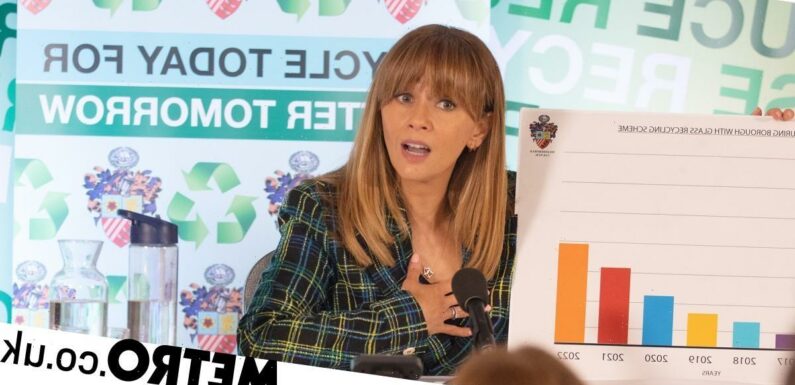
Maria Connor’s (Samia Longchambon) experience of online trolling in Coronation Street is an important reminder that no woman should have to accept abuse anywhere.
As our lives are increasingly played out online, the use of social media and smartphones to abuse and harass women and girls is also rising. It’s estimated that one in five women has suffered online abuse or harassment.
It’s become so everyday that we’re almost anaesthetised to reality.
If you’re a woman on social media, you know it well: the slight weariness that sets in when your phone pings, the drip-drip-drip.
Like many female social media users, Maria has been exposed to online harassment. But we’ve also seen her political platform being used against her.
The most personal content is used in the most personal and impersonal attacks, as a stranger used her image to fake a pornographic video.
You can see Maria’s anguish in the scene where she watches the edited video. The sorrow is etched on her face, her voice small. It’s a potent reminder that this is real – as much as we’ve been conditioned to dismiss it as solely ‘online,’ it’s seeping.
The hate is coming at us en masse. Its supposed otherworldliness doesn’t blunt it. Maria’s experience feels jarringly familiar, and it must resonate with many women.
Most online messages I receive are rather graphic, uninspired and standard. After all, the content likely hasn’t altered over generations.
Instead, the delivery method has modernised. It’s a simple increasing dripping of venom and spite that becomes corrosive over time.
That’s what Maria is experiencing. The drip-drip-drip, which so many have to bear. It goes on in the background. It ebbs and flows.
Some days, however, the volume of online abuse will be overwhelming and unendurable. My phone no longer pings. It wears me down.
We’re still telling women to censor themselves to curate their content, don’t be too opinionated, or you will receive abuse – it’s silencing.
Trolling is recreational bullying – usually anonymous – intended to disturb, alarm, and shrink the receiver – to push them back into their place – a firm rebuke through a hostile notification.
Sometimes it’s comparatively innocuous comments – or sent as private, direct vitriol through DMs. Mine are closed now, because I know better.
After all, women have had to learn the instinct of self-preservation in a new reality. Disabled women like myself have always been stigmatised and dehumanised.
Our lives have always been shaped and shrunk by the narratives and ideas pushed on us – self-preservation in the face of bias and ignorance is a daily reality, and few factors are more potent when mixed than ableism and sexism.
Unsurprisingly, new statistics from the charity Leonard Cheshire show that online disability hate crimes are a growing problem. They were 20.4% higher in 2021/22 than in 2020/21.
In the real world, I receive comments often. However, on social media, it is often more explicit and more sustained.
‘You’re beautiful/sexy/f***able despite your disability,’ ‘I could f*** you better.’
Of course, being a woman on social media means other elements exist. So, I pause before I open some DMs, fully aware that I am an unwilling participant in a game I call: Russian Roulette Dick Pic.
Recently, I wrote an article that I knew would get a strong reaction from some aspects of Twitter in which I dared to question a non-disabled man on his choice to wear prosthetics to appear disabled.
So, I planned how best to protect my account and mental health from the backlash. It’s the personal cost. I knew that it wouldn’t all be valid criticism. Rather, it was demeaning and insubstantial – strangers indiscriminately, relentlessly dismissing me as a “w****” and a “c***.”
It was only days, but the memory will last a lifetime: the sensation of dread and exhaustion, the bone-deep weariness, the skittishness and the strain on my body.
The underlying message: you deserve this – how dare you?
I wouldn’t go back and edit a single word.
But, I understood Maria when she said she intended to resign from her role on the local council because of her experiences.
I also understood when former councilwoman and mayor Sally Metcalfe (Sally Dynevor) pleaded with her not to let the online bullies succeed—acknowledging the unfairness and sexism those women in politics face.
Her argument changed Maria’s mind, but her plan to leave social media wasn’t a solution to a modern problem fuelled by age-old bigotry.
That is the point of online abuse – trolls want to unsettle, silence, drive you off and see the scraps of your life that you post only as helpful in breaking you down.
People abusing all women is hardly a new phenomenon. Still, we live in an era where social media is as much a part of our real lives, our natural world, as anything tangible—Maria’s experience reflects that truth.
Source: Read Full Article

